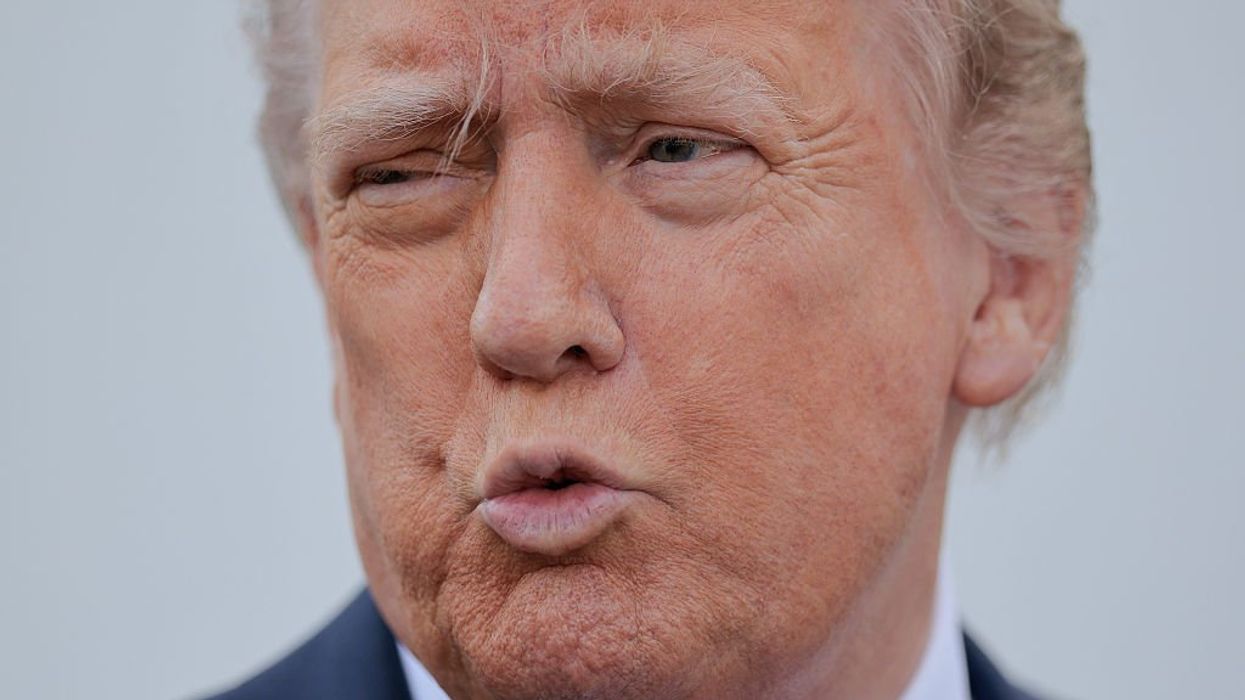Few can deny that whether you love or hate President Donald Trump, the first 100 days of his second term have been marked by bold and controversial actions that will shape American life for years, if not decades, to come. His administration has unleashed a torrent of dramatic moves: a record blitz of executive orders reshaping immigration, trade, and environmental policy; the escalation of trade wars, especially with China, that have rattled global markets; an aggressive effort to slash the size of federal agencies; and policy shifts in international relations, including a realignment on Russia and Ukraine. The stock market’s volatility reflects just how deeply these decisions are impacting the economic climate.
Yet, while the policy fireworks dominate headlines, a less visible but equally profound story is unfolding: the emotional toll Trump's presidency is having on millions of Americans.
For many, particularly those directly affected by the sweeping changes, there is a constant, gnawing sense of fear and uncertainty. Immigrants facing mass deportations, citizens facing the suspension of due process, members of the LGBTQ+ community being threatened with losing hard-fought rights, diversity programs dismantled, and hundreds of thousands of federal workers grappling with layoffs or the threat of them—all are navigating a landscape of heightened anxiety about their futures. The emotional distress among these groups is real, and it is growing.
But the ripple effects of emotional strain stretch far beyond traditionally marginalized communities.
Farmers —often seen as part of Trump's base—are among those now bearing heavy emotional burdens. The administration’s tariff battles have created market instability, slashed export opportunities, and driven up the cost of supplies. Farmers, many of whom operate on tight margins and seasonal incomes, are facing growing anxiety over the viability of their livelihoods. The unpredictable nature of Trump’s trade policies has left many feeling trapped between loyalty and economic survival, fueling frustration and fear in America’s agricultural heartland.
Veterans, too, are grappling with a deep sense of betrayal. Under the Department of Government Efficiency (DOGE) initiative, sweeping layoffs gutted the Department of Veterans Affairs, eliminating over 80,000 job s. These cuts have strained the system's ability to provide healthcare, mental health services, and employment for former service members. Veterans who once found purpose in helping their peers are now left jobless, while others are losing critical healthcare resources. This erosion of support has triggered new waves of anxiety, anger, and despai r among those who served.
The emotional landscape is also shifting dramatically for parents of children with disabilities. Cuts to Medicaid and other healthcare supports are threatening not just their children’s well-being but their families’ financial stability. As one parent told NBC Washington, "Without Medicaid, I don't know how we would survive." The sense of helplessness and fear that these families are experiencing is profound and growing.
And the list goes on. Women, worried about rollbacks to reproductive rights and workplace protections, report rising levels of fear and activism fatigue. University administrators must navigate an increasingly volatile environment for free speech, affirmative action, and campus safety. Nonprofit leaders, particularly those working on civil rights, environmental justice, and public health, are stretched thin trying to defend decades of hard-won progress against sweeping federal retrenchments.
Meanwhile, Trump’s confrontational leadership style is adding another layer of stress nationwide. Studies cited in Psychology Today in 2020 pointed to a clear trend: the president’s combative, polarizing, and often personal rhetoric heightens emotional distress across the political spectrum. Americans are again reporting increased levels of anxiety, anger, and political exhaustion. Many feel marginalized or unheard in a political climate defined by conflict rather than dialogue. Those on the right have had their fears fueled; those on the left have been cast as targets. The rising emotional distress only deepens Trump’s populist appeal, amplified through escalating “us vs. them” rhetoric and violent vocabulary.
In just 100 days, Trump’s presidency has left a visible mark on government institutions and global markets. But perhaps even more significantly, it has deepened the emotional divide within America, fraying the mental and emotional resilience of millions of its citizens.
If the next 1,360 days of his presidency continue at this pace, the damage to the American psyche may rival the political changes taking place on paper. Healing will not come easily.
David Nevins is co-publisher of The Fulcrum and co-founder and board chairman of the Bridge Alliance Education Fund.
Kristina Becvar is co-publisher of The Fulcrum and executive director of the Bridge Alliance Education Fund.



















Trump & Hegseth gave Mark Kelly a huge 2028 gift